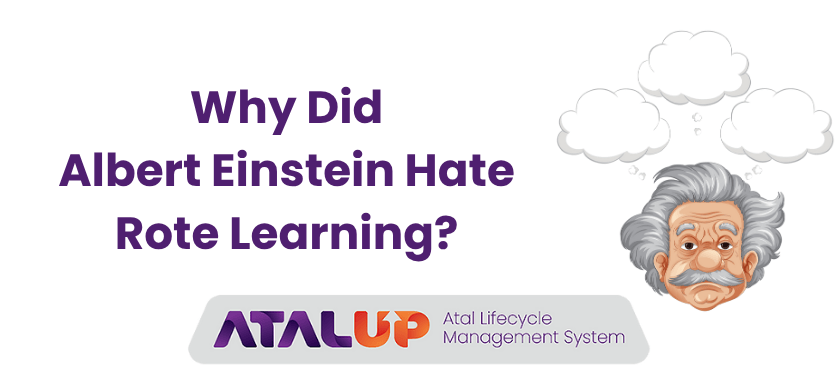
“Albert Einstein was a poor student.”
We’ve all heard this while discussing Albert Einstein’s education. And we’ve all imagined a wild-haired genius who somehow miraculously made it big despite failing in school.
But the truth is far more powerful.
Einstein wasn’t bad at studies. He was just bad at boring studies. He hated rote learning, disliked rigid systems, and often skipped class. But give him a math puzzle or a physics problem, and he would light up. By 12, he was teaching himself geometry. By 16, he was writing science papers. By 26, he had a Ph.D. and had published four revolutionary papers in physics.
He didn’t need marks. He needed freedom.
Why Did Albert Einstein Leave His School
At age 15, he dropped out of the Luitpold Gymnasium in Munich because he found the rigid and authoritarian system suffocating. He hated rote learning and strict discipline. After leaving, he moved to Italy to join his family and continued studying on his own.
Later, he enrolled in a Swiss secondary school in Aarau, which had a more open and encouraging environment. This change helped him thrive and eventually qualify for college. So yes, Einstein walked away from traditional schooling to follow a path that made more sense to his curious mind.
And this is exactly what many of our kids need today.
Grades Don’t Measure Genius
Think about it, how many children feel “less than” just because they can’t score well in exams? How many parents feel helpless because their child is full of curiosity, but the system doesn’t recognize it?
Just like Einstein, many kids struggle not because they lack talent, but because they’re trapped in a system that rewards memorization over imagination. When did World War 2 happen? Who was the first president of the USA? What is the literacy rate of Kerala? Looking at the real-world scenarios where AI is taking over all industries, we must focus on teaching next-gen technologies to our young learners.
It is not so very important for a person to learn facts. For that, he does not really need a college. He can learn them from books. The value of an education in a liberal arts college is not the learning of many facts, but the training of the mind to think something that cannot be learned from textbooks.
Albert Einstein
So, what if we gave them the space to explore, the tools to create, and the freedom to think differently? That’s where Atal Tinkering Labs come in.
Atal Tinkering Labs
Across India, Atal Tinkering Labs (ATL) are quietly bringing a revolution to school education. These labs aren’t about books and exams. They’re about real-world learning. About hands-on experiments. About failing, fixing, and figuring things out, just like scientists do.
In an ATL, you’ll find students building robots, designing smart farming systems, creating pollution sensors, and even programming apps. You’ll find 12-year-olds learning coding, electronics, and 3D printing, not from a textbook, but by doing it themselves.
It’s messy, exciting, and full of life. And for many students, it’s the first time they truly fall in love with learning.
India Has Its Own Einsteins
You may not see them in the toppers’ list. But they’re in your classroom, sketching machines in their notebooks. They’re at home, opening up broken gadgets to see how they work. They’re thinking, questioning, tinkering.
And they need just one thing, opportunity.
Atal Tinkering Labs give them that. They unlock a world where marks matter less than making. Where talent is seen, heard, and encouraged. Where being “different” is finally an advantage, not a punishment.
Let’s Stop Labeling. Let’s Start Listening.
Every time a child struggles with rote learning, we must pause and ask: Is the child weak? Or is our method outdated?
Einstein once said, “It is nothing short of a miracle that modern education has not yet completely strangled the holy curiosity of inquiry.”
Let’s not let that miracle die.
Let’s build more schools with ATLs.
Let’s support students who dream beyond textbooks.
Let’s give our children the confidence to say, “Maybe I don’t score full marks, but I’ll still change the world.”
Because in every child who questions the rules, there might just be another Einstein… waiting for his lab.